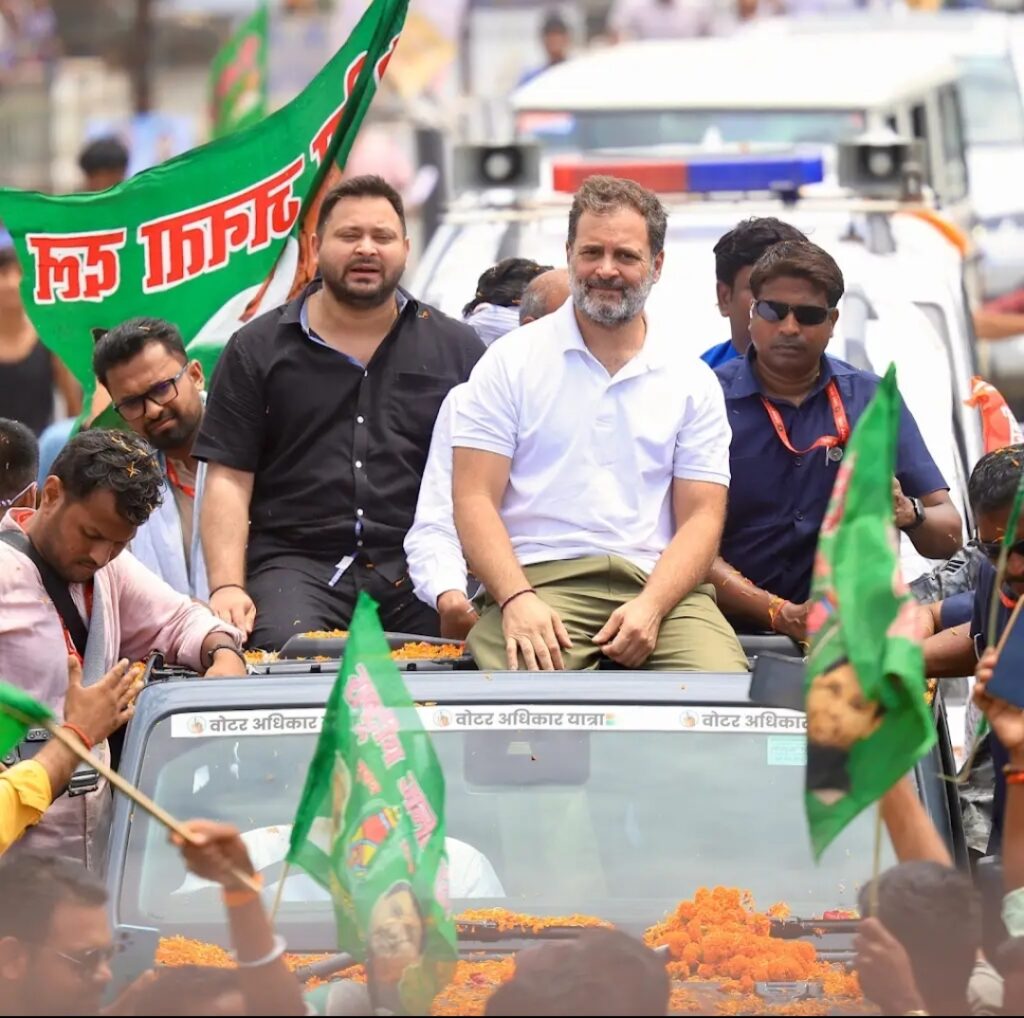
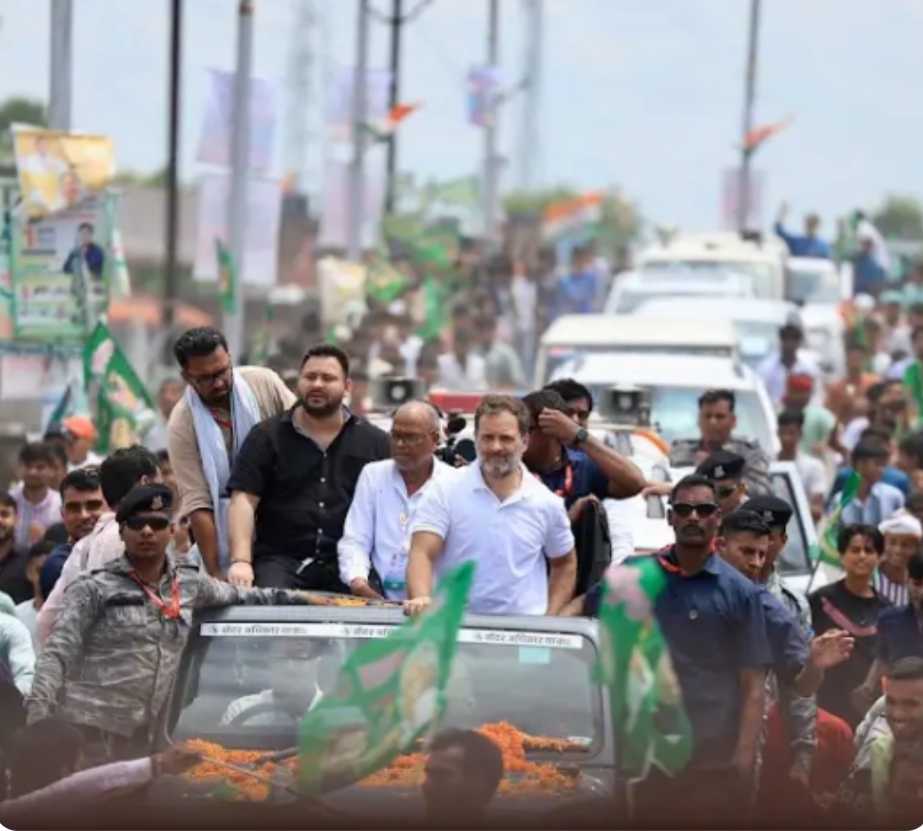
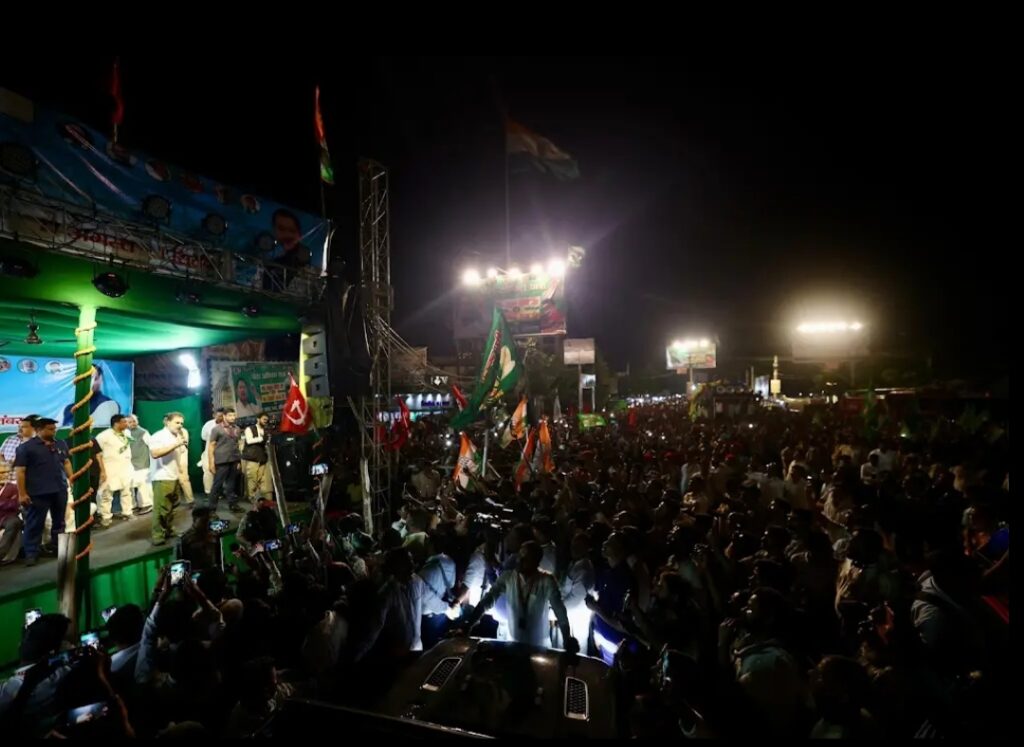
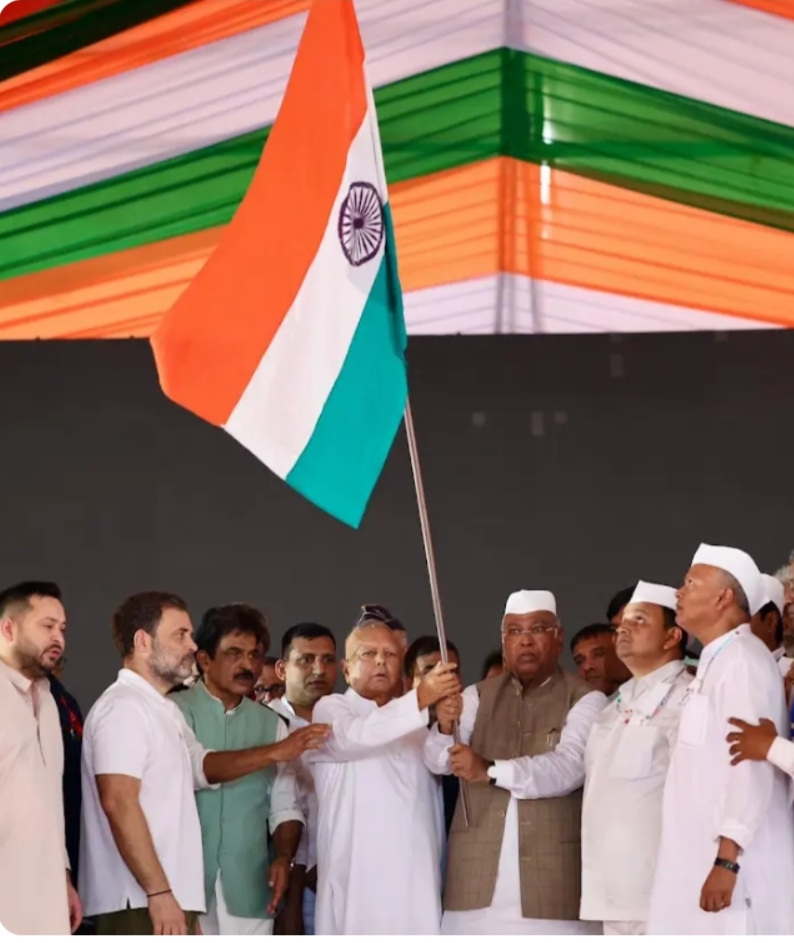
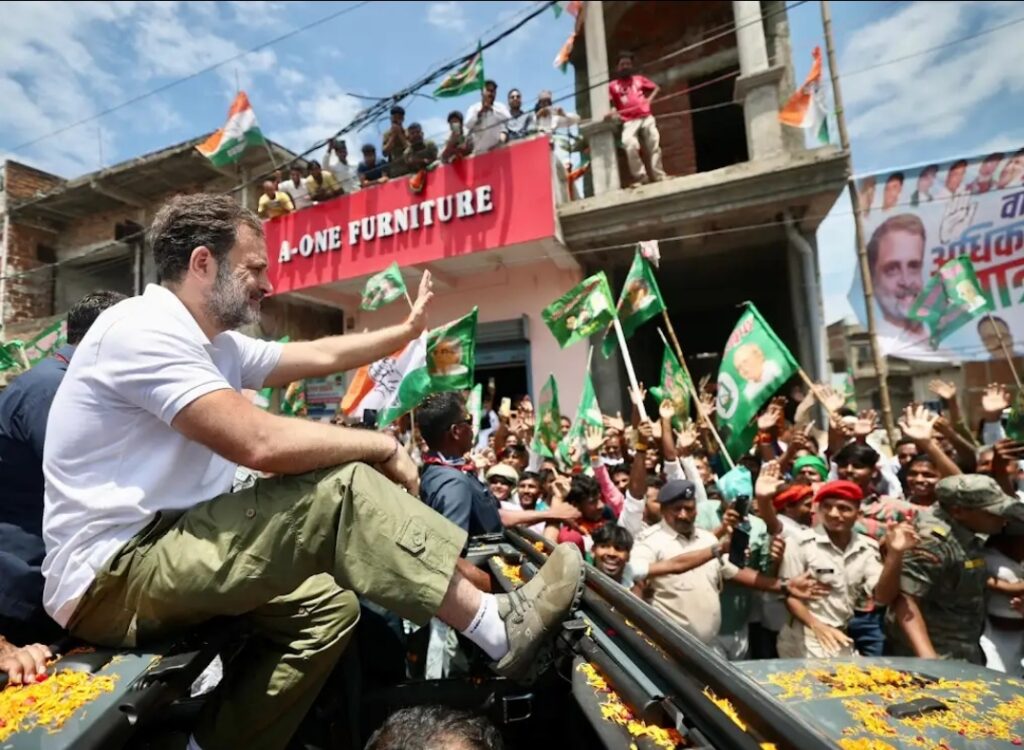
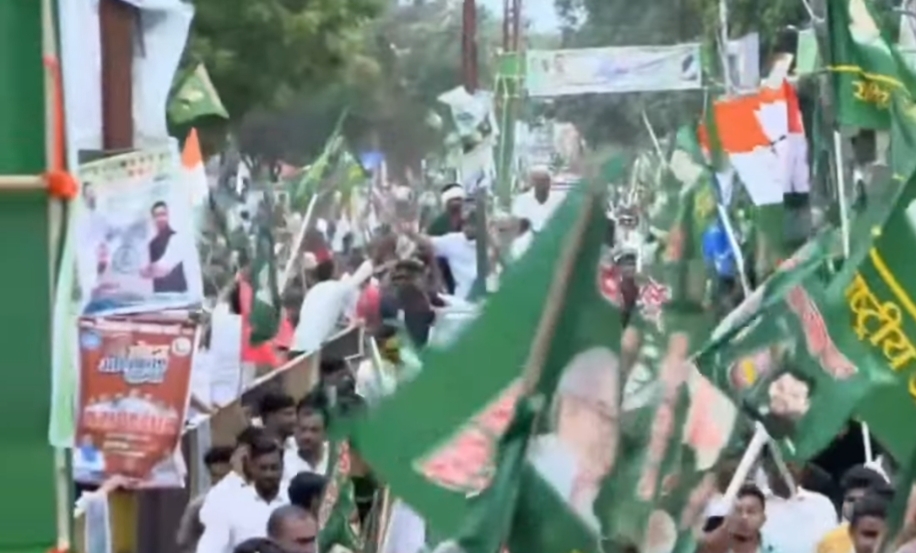
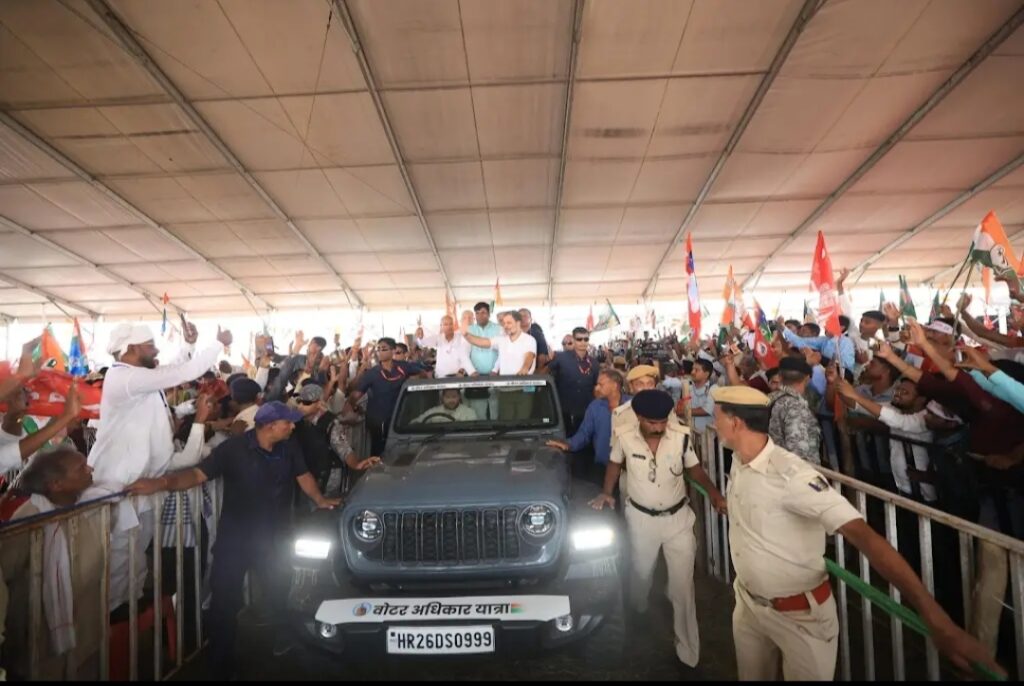
Rahul Gandhi’s Vote Adhikar Yatra: Igniting a Voter Rights Revolution in Bihar
A March Against Alleged Electoral Manipulation
In the sweltering heat of Bihar’s plains, Congress leader Rahul Gandhi embarked on a 16-day ‘Vote Adhikar Yatra’ on August 17, 2025, traversing 1,300 kilometres across 20 districts. Starting from Sasaram and set to culminate in a grand rally in Patna on September 1, the yatra has drawn massive crowds, with supporters showering flower petals and chanting slogans in districts like Nawada and Sheikhpura. Accompanied by Rastriya Janata Dal (RJD) leader Tejashwi Yadav, Gandhi’s march is framed as a crusade to protect voting rights amid accusations of a “conspiracy to steal votes” through the Election Commission of India’s (ECI) Special Intensive Revision (SIR) of voter lists. This initiative comes just months before Bihar’s assembly elections in November 2025, positioning it as a potential catalyst in the state’s volatile political landscape.
The yatra builds on Gandhi’s previous campaigns, such as the Bharat Jodo Yatra (2022-23) and Bharat Jodo Nyay Yatra (2024), which revitalized his image and contributed to the Indian National Developmental Inclusive Alliance (INDIA) bloc’s strong showing in the 2024 Lok Sabha elections, where Congress nearly doubled its seats to 99. However, this latest endeavour escalates the stakes, directly challenging the ECI and the ruling Bhartiya Janata Party (BJP), accusing them of undermining democracy.
The Yatra’s Momentum: Crowds, Controversies, and Core Message
From day one, the yatra has witnessed an overwhelming response.
In Sasaram, Gandhi addressed throngs, alleging that the SIR process—aimed at updating voter rolls—is a “new conspiracy” by Prime Minister Narendra Modi and Home Minister Amit Shah to disenfranchise poor and marginalized voters, particularly from backward castes and Dalits.
Tejashwi Yadav, echoing this, has projected Gandhi as the INDIA bloc’s prime ministerial face for 2029, signaling a unified opposition front in Bihar, where the Mahagathbandhan alliance (including Congress, RJD, and others) aims to unseat the BJP-led National Democratic Alliance (NDA).
Incidents have punctuated the march, including a video of Gandhi’s convoy allegedly injuring a police constable in Nawada, which the BJP amplified to criticize the Congress leader.
Gandhi responded by ensuring the officer received medical aid, even seating him in his car, turning the episode into a display of empathy.
Social media buzz, with posts from supporters highlighting “massive support,” underscores the yatra’s grassroots appeal.
Analysts note similarities to Gandhi’s earlier yatras but emphasize its targeted focus on voter rights, differentiating it as a pre-election mobilization rather than a broad unity march.
A Defining Moment in Bihar’s Electoral History?
Bihar’s politics has long been defined by caste dynamics, alliances, and high-stakes drama, from Lalu Prasad Yadav’s rise in the 1990s to Nitish Kumar’s flip-flops. Gandhi’s yatra could mark a pivotal shift, transforming voter list revisions—a routine administrative task—into a symbol of democratic erosion.
By framing SIR as “vote chori” (vote theft), Gandhi taps into historical grievances over electoral integrity, reminiscent of the 1975 Emergency or the 2019 EVM controversies.
Experts like journalist Abhay Dubey argue that the yatra has made SIR a “headache” for the BJP and ECI, with crowds exceeding expectations despite short notice.
RJD’s Sanjay Yadav described it as “remarkable,” reflecting public outrage against the NDA. 1 If sustained, this could redefine Bihar’s electoral narrative, prioritizing voter empowerment over traditional caste arithmetic, making it a defining moment akin to Jayaprakash Narayan’s 1974 movement.
Game Changer for November’s Bihar Assembly Elections?
With the NDA holding a slim majority after the 2020 polls (125 seats to Mahagathbandhan’s 110), the November 2025 elections are poised for a photo finish. The yatra positions vote integrity as the central issue, potentially galvanizing anti-BJP voters. Gandhi’s warnings—that the nation will demand affidavits from ECI officials post-INDIA victory—have escalated tensions, vowing action against Chief Election Commissioner Gyanesh Kumar and his colleagues.
Tejashwi’s endorsement of Gandhi as PM candidate strengthens the alliance, but Congress’s silence on Yadav as CM face hints at internal negotiations. Polls suggest the yatra could boost Mahagathbandhan’s prospects, especially if it exposes SIR discrepancies. However, BJP leaders like Syed Shahnawaz Hussain dismiss it as a “failure,” predicting no electoral dent.
If the yatra sustains momentum, it might tip the scales, making vote rights the decisive factor.
National Impact and BJP’s Counter offensive
Beyond Bihar, the yatra has national echoes. Gandhi’s attacks on the ECI for “serious discrepancies” in voter rolls challenge institutional credibility, potentially influencing upcoming polls in Jharkhand, Maharashtra, and Haryana.
It builds on his 2024 resurgence, where he positioned himself as a defender of the Constitution, carrying a pocket edition during campaigns.
The BJP’s response has been aggressive: protests in Hisua, videos alleging yatra mishaps, and accusations of Congress fabricating excuses for defeats.
BJP MP Anurag Thakur countered with claims of irregularities in Gandhi’s constituencies, Rae Bareli and Wayanad.
Modi and Shah have remained silent, but the party defends SIR as routine, urging focus on development. ECI’s ultimatum for an affidavit or apology from Gandhi underscores the rift, with CEC Kumar rejecting bias allegations.
Ramifications for National Politics
In broader terms, the yatra could erode public trust in the ECI, prompting calls for reforms like transparent voter verification.
If successful, it bolsters Gandhi’s stature, weakening BJP’s narrative dominance post-2024 setbacks. Ramifications include heightened polarization, possible legal battles over SIR, and a reinvigorated opposition eyeing 2029.
However, risks abound: overreach on allegations could backfire if unsubstantiated, alienating moderates. For BJP, failing to counter effectively might signal vulnerability in heartland states.
A Test of Democratic Resilience
Rahul Gandhi’s Vote Adhikar Yatra is more than a march—it’s a litmus test for India’s electoral democracy. As Bihar heads to polls, its outcome could reshape alliances, challenge institutions, and redefine political discourse. Whether it heralds a resurgence or fizzles amid controversies, one thing is clear: the battle for votes has never felt so literal.
Hasnain Naqvi is a former member of the history faculty at St. Xavier’s College, Mumbai





